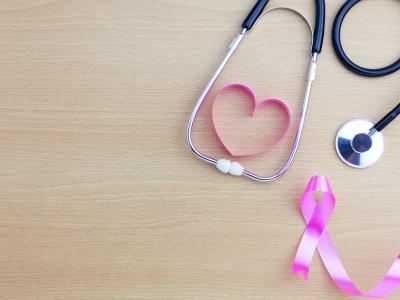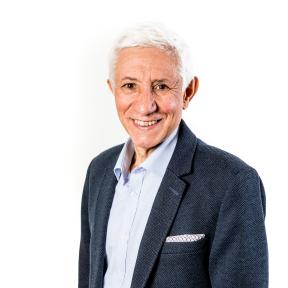Breast cancer treatment: protect your heart!

Breast cancer treatment: protect your heart!
Breast cancer is one of the most frequent types of cancer but today 90 out of 100 women survive the disease and are alive 5 years after they've been diagnosed. This thanks to improvements in the field of prevention, treatment, and rehabilitation.
There are many treatments available for breast cancer at present, and more are under study and development. In recent years, more approaches based on tumour profile, such as the definition of the HER-2 expression and specific genetic alterations, have progressed. Although surgery, radiotherapy, chemotherapy, and hormone therapy have represented the classic therapies for decades, the use of modern therapies, including anti-target treatments, have made it possible to control the disease better and to increase the survival of breast cancer.
October is Breast Cancer Awareness Month, and we would like to highlight that as more people survive, the risk of developing long-term side effects is becoming an increasing concern. Chemotherapy and radiation therapy to the chest can cause heart problems and some survivors may have a higher risk.
What is cardiotoxicity?
Several side effects are related to the administration of anticancer drugs, and cardiotoxicity is a rare but particularly relevant event, mainly with the use of some drugs. Among these, anthracyclines and Herceptin deserve a particular attention and evaluation.
Another risk factor of heart damage is radiotherapy, especially for cancer in the left side and when associated with anthracyclines and/or anti HER-2 treatments. Furthermore, using radiotherapy must require particular methods and technologies to limit the risk of cardiotoxicity in patients with deformities of the thoracic cage, such as pectus excavatum, severe scoliosis, etc.
In addition to potentially cardiotoxic therapies, classic predisposing factors, such as age, hypercholesterolemia, obesity, hypertension, and diabetes, could increase the risk of heart problems and must be carefully considered.
Cardio-Oncology Services are important
In the last decade, to address such a particular and complex problem with more attention and pragmatism, many European and American health centres have activated Cardio-Oncology Services. They published recommendations and guidelines for prevention, treatment and follow-up of cancer patients receiving potentially cardiotoxic therapies (1,2). In these multidisciplinary services, cardiologists, oncologists, and other specialists deal with individual cases and define a programme to prevent, treat and check cardiac alterations in the best feasible way.
The creation, dissemination and accessibility of these Cardio-Oncology Services is certainly one of the most relevant strategies. Not only to address the issue in an advanced and pragmatic way but also to improve the survival and the quality of life of patients with breast cancer.
We therefore hope that these services will be available and that more patients will find adequate, advanced, and modern answers to minimize the problem of cardiotoxicity.
A healthy lifestyle, physical activity, a suitable diet, and the elimination of smoking are also simple general criteria strongly recommended to maintain a heart in good health.
Do you have questions about your treatment options? You can ask My Cancer Navigator for more information here.
More information about My Cancer Navigator
References
- ESC Guidelines on cardio-oncology developed in collaboration with the European Haematology Association (EHA), the European Society for Therapeutic Radiology and Oncology (ESTRO) and the International Cardio-Oncology Society (IC-OS): Developed by the task force on cardio-oncology of the European Society of Cardiology (ESC) https://academic.oup.com/eurheartj/advance-article/doi/10.1093/eurheartj/ehac244/6673995?login=false
- Management of cardiac disease in cancer patients throughout oncological treatment: ESMO consensus recommendations, https://www.annalsofoncology.org/article/S0923-7534(19)36080-6/pdf

